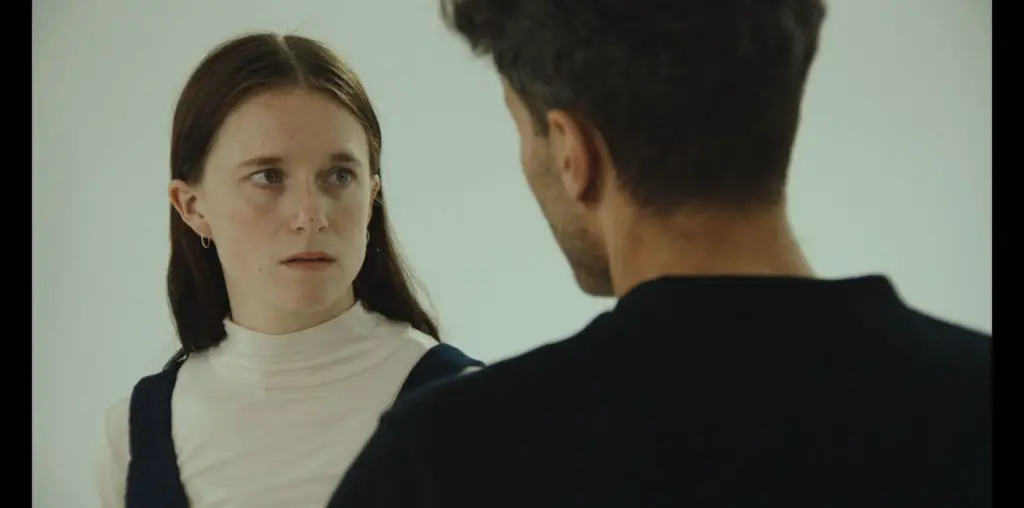
“The last thing Matthew saw was the sparkling lights of Laramie, Wyoming.” So says an auto mechanic, played by Steve Buscemi, of the moment his friend Matthew Shepard – a 22-year-old gay college student – slipped into a coma after a savage beating. The attackers, a pair of stupid young homophobes named Russell Henderson and Aaron McKinney, began by luring Shepard out of a local bar and ended up lashing him to a split-rail fence, leaving him for dead in the frigid night air. It was October 6th, 1998.
Within a day, both Henderson and McKinney were in jail, and America’s eyes were upon the town of Laramie, population 26,687. After a national deathwatch which lasted nearly a week, Shepard slipped out of his coma and into the arms of death after midnight on October 12th. Less than a month later, playwright Moisés Kaufman and members of his Tectonic Theater Project ventured to Laramie and conducted interviews with more than 200 of its residents. “The Laramie Project” is the result of their noble efforts.
And a noble piece of work it is, if significantly flawed. The Shepard case – like the savage slaying of James Byrd in Jasper, Texas only four months earlier – focused national attention on the fathomless depths of hatred that still exist in America, depths few of us wish to contemplate. It’s a compelling and horrifying story, and “The Laramie Project” is worthwhile for reminding us that this sort of thing does, in fact, still happen in America. Laramie is America, and America is Laramie. As one local eloquently says in the film, “It happened here, so how can this not be the kind of town where this happens? We are like this.”
The flaws in “The Laramie Project” arise not from the telling of the story, but rather from the acting of it. For lack of a better term, it’s an “acted documentary.” In other words, Kaufman has enlisted a formidable roster of American indie talent to not only play the roles of Laramie’s citizenry, but also of those who interview them. This is problematic not only because of the way the parade of famous faces sets one at a remove from the monstrous reality of the story, but also because, quite frankly, some of the actors are better than others. Some convince, and some do not. Luckily, most shine: Dylan Baker as the chief neurosurgeon who tended to Shepard, Peter Fonda as the doctor who first admitted him, Christina Ricci as Shepard’s best friend, Jeremy Davies as a drama student, Clancy Brown as a detective, Joshua Jackson as a bartender, Ben Foster as the boy who discovered Shepard tied to the fence. Terry Kinney, in the role Shepard’s father, has a tour-de-force courtroom scene in which he drives home the horror of his son’s murder to McKinney (Mark Webber, also terrific).
Often, though, there’s a slightly queasy feeling that Shepard as a human being has gotten lost in the shuffle of name actors, that many of the actors and filmmakers, rather than honoring Shepard’s life, are merely making themselves – and by extension all of us – feel better about his death. The lack of even a single photograph of Shepard – which, placed at the final fade, would have provided the sort of emotional wallop much of the film is missing – feels like something of an insult. Matthew Shepard was a young man who died because he was in the wrong place at the wrong time with a couple of small-minded brutes who simply couldn’t handle the fact that he happened to be gay. “The Laramie Project” certainly has power, but the film could have paid a bit more mind to Shepard the person, and a bit less to Shepard the victim.
